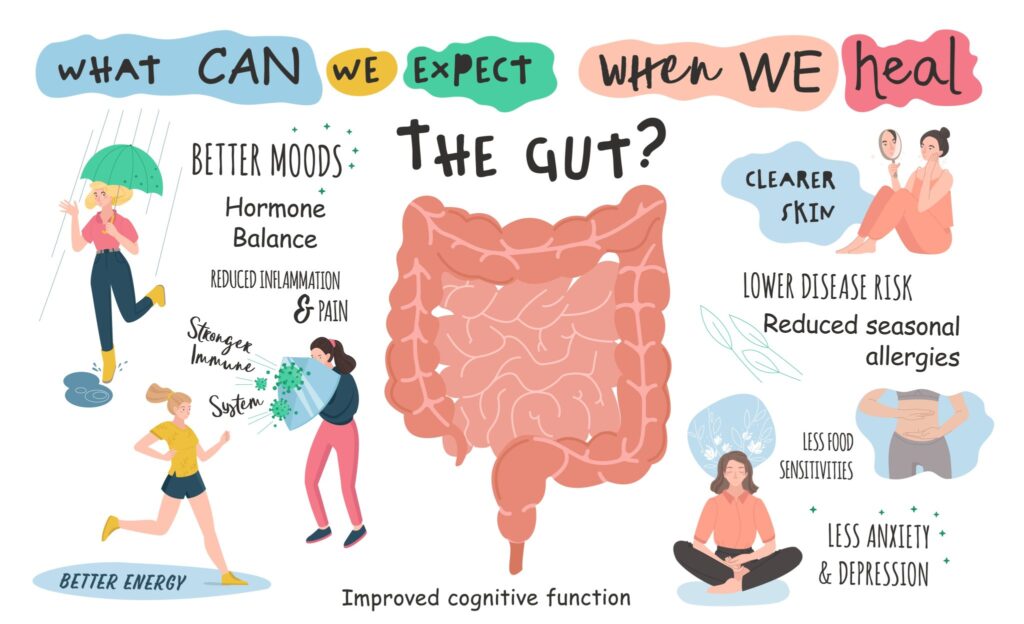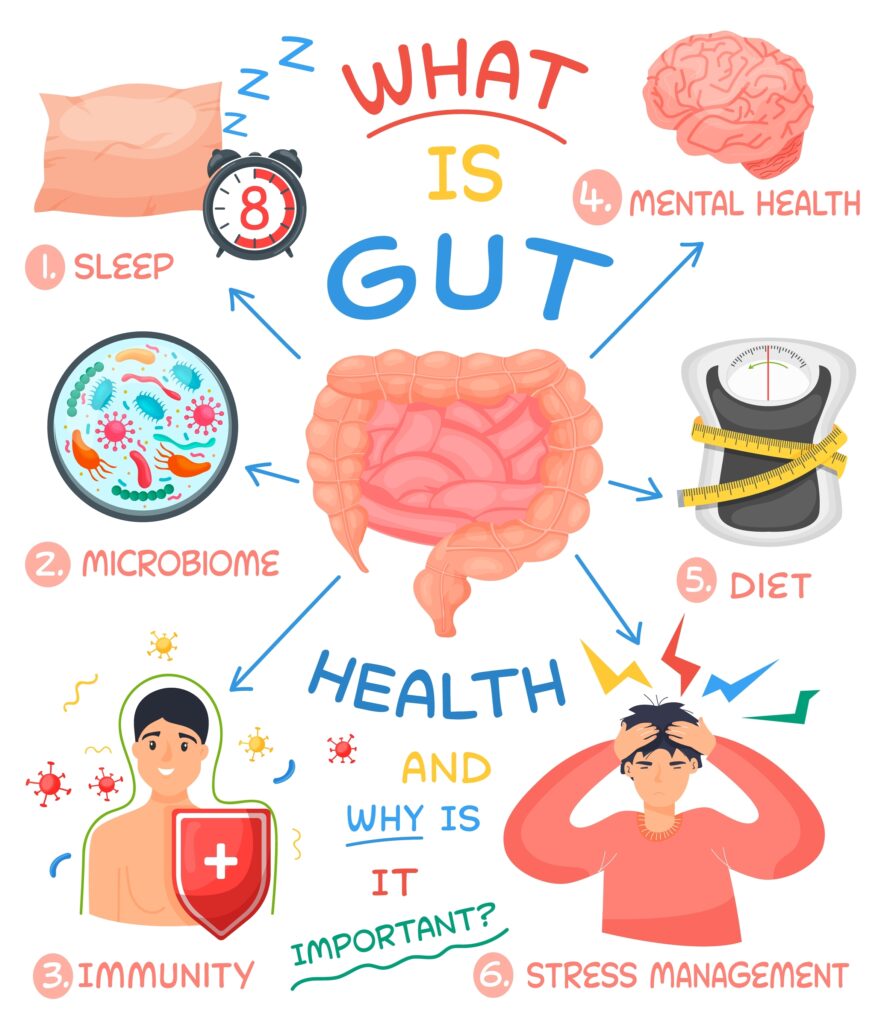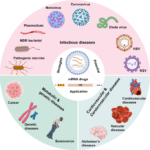Why Is Gut Health So Important?
The gut is often called the ‘second brain’ because it affects everything from digestion to mental health. A balanced microbiome supports immune function, energy levels, and even mood regulation.
Understanding the Microbiome
Your gut microbiome is made up of trillions of bacteria, fungi, and other microbes. A healthy balance of these microbes is crucial for digestion, nutrient absorption, and protecting against harmful pathogens.

Signs of an Unhealthy Gut
• Digestive Issues – Bloating, constipation, or diarrhea
• Low Energy – Poor gut health affects metabolism and nutrient absorption
• Weakened Immunity – Frequent colds or infections
• Skin Problems – Acne, eczema, or inflammation
• Mood Swings – Anxiety and depression can be linked to gut imbalances
How to Improve Your Gut Health Naturally
1. Eat More Fiber – Fiber-rich foods like whole grains, fruits, and vegetables feed good bacteria.
2. Include Probiotics and Prebiotics – Yogurt, kefir, kimchi, and kombucha help support healthy gut flora.
3. Reduce Sugar and Processed Foods – These can disrupt gut bacteria balance.
4. Stay Hydrated – Water helps digestion and maintains a healthy gut lining.
5. Manage Stress – High stress negatively impacts gut health, so practice mindfulness and relaxation.
The Gut-Brain Connection: How Your Gut Affects Mental Health
The gut and brain communicate through the vagus nerve, meaning poor gut health can lead to anxiety, stress, and mood disorders. A healthy microbiome can improve mental clarity and emotional well-being.
Best Foods for Gut Health
• Fermented Foods – Yogurt, sauerkraut, miso
• High-Fiber Foods – Lentils, apples, oats
• Healthy Fats – Avocados, nuts, olive oil
• Herbal Teas – Ginger, peppermint, chamomile
Final Thoughts: Take Control of Your Gut Health
A healthy gut is the foundation of overall wellness. By making small changes to your diet and lifestyle, you can improve digestion, boost immunity, and even enhance your mood. Start taking care of your gut today!


